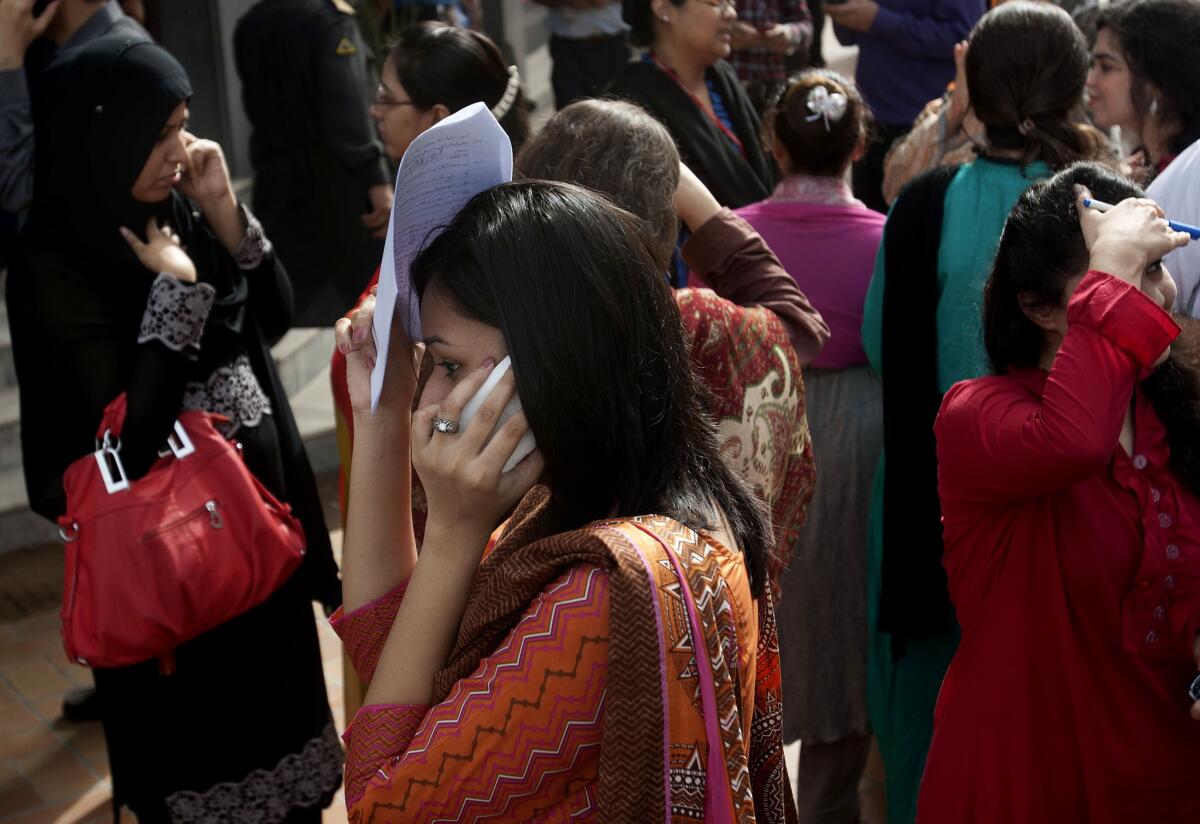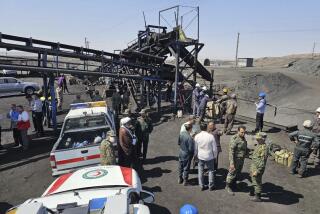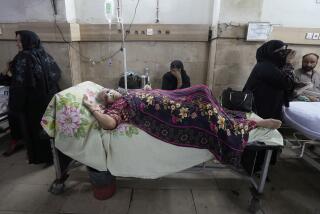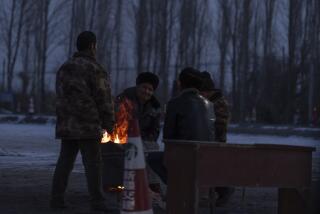Dozens reported killed in Pakistan after massive Iran quake

ISLAMABAD, Pakistan -- Dozens of people were reportedly killed in Pakistan after a massive earthquake struck a remote border area of neighboring Iran on Tuesday. Yet in Iran, officials said the disaster was far less devastating than originally feared, telling reporters there were no deaths on Iranian soil.
In Pakistan, television and Dawn newspaper cited officials as confirming 34 deaths in Baluchistan province as hundreds of houses collapsed Tuesday. The Associated Press later reported the same number of casualties and at least 80 more people injured in Pakistan, citing a military official.
The quake was felt throughout Pakistan, from the capital, Islamabad, to Karachi, the nation’s commercial hub along the Arabian Sea, where people frantically evacuated downtown office buildings. But it hit hardest in villages near the Iranian border in Baluchistan, the country’s least populated province.
Scores of houses, many of them mud huts, collapsed in the town of Mashkhel, said the Pakistani military in a prepared statement. The army dispatched helicopters with medical teams, tents and other aid to begin relief efforts.
Prime Minister Mir Hazar Khan Khoso ordered officials in Baluchistan to provide immediate relief to quake victims “on a war footing basis.” Rescue workers were digging through the rubble for survivors, and officials warned that the death toll could rise.
Early reports from Iranian media also had claimed scores of casualties in that country after the quake hit Saravan, an isolated and impoverished region not far from the Pakistani border. Iranian state television later reported that 27 people suffered injuries but no one had died on Iranian soil.
“In Saravan, fortunately, we had no one killed,” a Red Crescent official who requested anonymity because he was not authorized to speak with the media told the Los Angeles Times. “We had several patients hospitalized, but not in serious condition.”
Another staffer was still visiting hospitals and damaged areas, he said.
Aid agencies rushed to the area to search for more survivors under rubble, a Red Crescent official told Iran’s official Islamic Republic News Agency. Iranian state television reported survivors were warned to stay away from clay and brick houses and sleep under the sky or in tents provided by relief teams. Nineteen aftershocks were reported.
The largely Sunni Muslim border region is politically volatile, wracked by dire poverty and drug trafficking. The stretches of southeastern Iran hit by the quake are sparsely populated, one reason that Iranian officials said the region was spared any greater bloodshed. Iranian state television reported that the area of Saravan, which was at the epicenter, has 24,000 inhabitants.
Seismologist Behman Ovaisi told Iranian state television that the depth of the temblor might also help explain why the Iranian death toll was lower than originally feared. Several seismological sources put the depth at greater than 50 miles.
The U.S. Geological Survey measured the quake at magnitude 7.8, which would make it the strongest to hit the region in at least 40 years, according to an agency database stretching back to 1973. Iranian seismologists told local media that the temblor measured 7.7.
As Iranians and Pakistanis sifted through conflicting reports about the death toll, the isolated area could not be reached by telephone “due to the high communication traffic in this area,” Mahmoud Gholipour, who heads a telecommunications board in Sistan and Baluchistan provinces, told Mehr news agency. Neither land lines nor mobile phones could reach the region.
Iranian state television later reported that phone lines were up and water and electricity were available, citing officials from local relief agencies.
ALSO:
Pakistani court disqualifies Musharraf from parliament elections
Chinese poaching of rare mammal exposed by boating accident
London may tighten security for its marathon after Boston bombings
Times staff writer Rodriguez reported from Islamabad and special correspondent Mostaghim from Tehran. Emily Alpert in Los Angeles contributed to this report.
More to Read
Sign up for Essential California
The most important California stories and recommendations in your inbox every morning.
You may occasionally receive promotional content from the Los Angeles Times.










